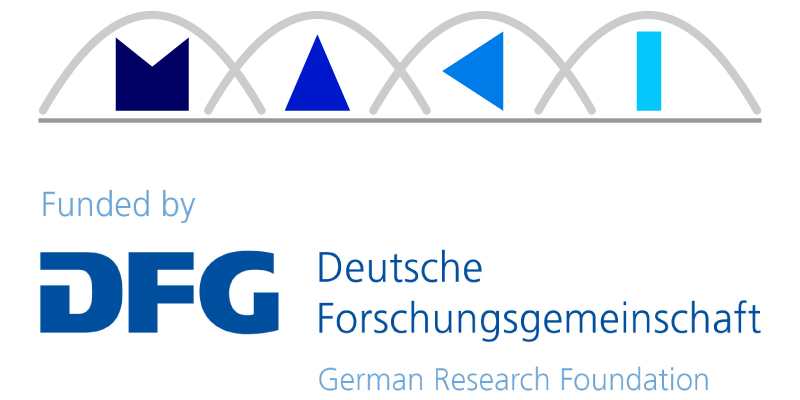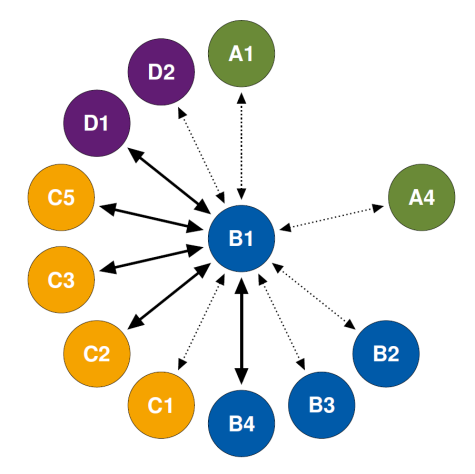After basic concepts for the efficient acquisition, collection, analysis and distribution of monitoring data under dynamic framework conditions were developed in Phase I of the CRC, research in Phase II focused on the concept of Monitoring-as-a-Service. Here, monitoring was adapted to multi-mechanism requirements and appropriate interfaces were developed to communicate these requirements. The methods developed for instrumenting highly dynamic networks allow concrete statements to be made without assuming complete instrumentability. Likewise, the monitoring itself performs transitions in order to exchange the monitoring mechanisms during operation and thus adapt to the current framework conditions.
Instead of minimally invasive provision of as much data as possible for monitoring transition-capable communication systems and for the transitions in the monitoring itself, as in the first two phases, phase III aims to achieve a high level of data economy with approximate monitoring, including reduced availability and/or quality of the monitoring data. Ideally, only monitoring data of the exact quality required for transitions should be provided in order to reduce the load on the resources involved and, in particular, on the network to a maximum. In concrete terms, the quality of the monitoring data is adapted to the existing framework conditions and the requirements of the multi-mechanisms. Low-quality monitoring data are characterized by larger confidence intervals, for example, and thus provide less information about the actual state of a measured system. In order to evaluate a potential transition, it is important to ensure that the mechanisms being considered for that transition are distinguishable in terms of their quality, despite this imprecision in monitoring. If the quality of the monitoring data is insufficient for this differentiability, the monitoring will adaptively increase the quality of the monitoring data and thus also the resources used in order to guarantee the correctness of a transition decision with the desired probability. In addition to the consideration of the transition decision, the quality of the mechanisms and their dependence on monitoring remains of central importance. It must be ensured that the monitoring data required for the mechanism is available with sufficient accuracy, which must be fulfilled especially for multi-mechanisms with mission-deciding requirements.
Often, monitoring data is also needed about communication systems that behave agnostically towards transitions or are not directly observable. For this purpose, the methodology of network tomography is extended in such a way that the state of the non-transitionable communication system is not estimated with maximum accuracy by the available monitoring instances, but only with sufficient accuracy. The focus is on the selection of suitable monitoring points, since these influence the quality and availability of the monitoring data. Thus, the monitoring instances should be selected in such a way that the quality and availability of the monitoring data meet the requirements of the multi-mechanisms. The achievable monitoring quality should be determined with the help of methods of optimal design of experiments, for which a new statistical model of monitoring and its minimum possible interaction with the communication system are needed. The exact form in which the desired significance of the monitoring data depends on the current and future state of the multi-mechanism is to be researched.
In addition, as already analyzed in detail in phase II, there is a significant multilateral dependency between monitoring and transition-enabling mechanisms, which is magnified by the deliberate inaccuracy of monitoring data. Therefore, well-defined guarantees regarding the quality of the monitoring data in certain sub-areas are absolutely necessary to ensure a satisfactory performance of the multi-mechanisms supplied with the monitoring data. To this end, procedures will be investigated to provide guarantees regarding the quality and availability of monitoring data for multi-mechanisms with mission-cruical requirements.
Ultimately, the subproject considers the following two main interrelated aspects for the monitoring service research: i) the approximate monitoring of communication systems so that the quality and quantity of data can be adapted to the requirements of the multi-mechanisms and ii) the investigation of possible guarantees to ensure the performance of multi-mechanisms with mission-crucial requirements.







